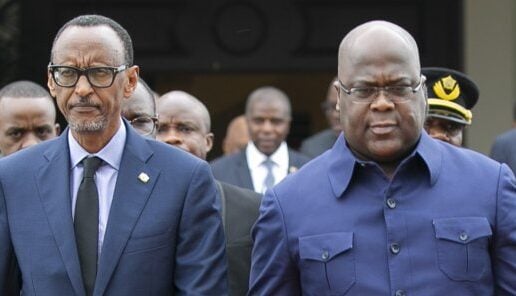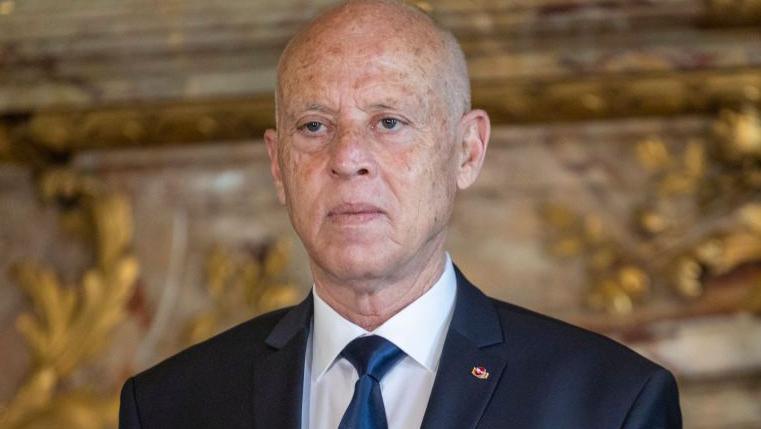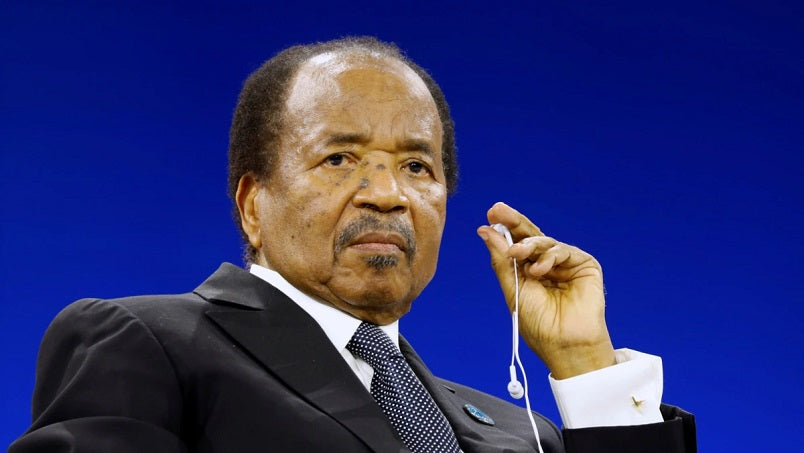
Francophonie Summit: the Fatshi-Kagame diplomatic incident that dampened the mood
Francophonie: diplomacy in the face of regional conflicts
The Francophonie Summit, which was supposed to be a moment of dialogue and cooperation between French-speaking countries, was marred by an incident that highlighted the deep geopolitical divisions between some member states. At the epicenter of this controversy were the presidents of the Democratic Republic of Congo (DRC), Félix Tshisekedi, and Rwanda, Paul Kagame, whose diplomatic relations are already at an all-time low due to the conflicts in eastern Congo.
The summit, which was held in a tense atmosphere, took an unexpected turn when Félix Tshisekedi left the discussions after the speech of Emmanuel Macron, French President. The latter, although a traditional mediator in African crises, avoided addressing in depth the issue of violence in North Kivu, where the M23 rebel group, supported by Kigali according to Kinshasa, continues to sow terror.
For the DRC, the omission was more than a diplomatic oversight. “It is unthinkable that we are attending a summit that is supposed to promote peace and cooperation, without the suffering of millions of Congolese being discussed,” said a source close to the Congolese delegation. Tshisekedi’s hasty departure cast a chill over the assembly, hinting at differences far deeper than those publicly expressed.
M23: a ghost that haunts Rwanda-DRC relations
The M23 rebel group, accused of being supported by Rwanda, is one of the major points of tension in relations between Kinshasa and Kigali. For years, the DRC has accused Paul Kagame of providing military and logistical assistance to these rebels who are destabilizing eastern Congo. For its part, Kigali denies these allegations while accusing the DRC of collaborating with the Democratic Forces for the Liberation of Rwanda (FDLR), an armed group involved in the 1994 genocide.
The Francophonie summit could have served as a platform to address these issues. However, the lack of political will, combined with complex alliance games, prevented any real discussion on the subject. The Secretary General of the International Organization of the Francophonie (OIF), Louise Mushikiwabo, former Minister of Foreign Affairs of Rwanda, did not allay the fears of the Congolese delegation, which sees it as Rwandan control over the decisions of the OIF.
For several observers, Macron's silence and Kagame's attitude reflect a real diplomatic malaise. "It is clear that France, as a former colonial power and ally of both nations, prefers to avoid taking sides openly," said a diplomat present at the summit. "But by playing the balancing act, Paris risks losing its influence in Africa."
Francophonie eclipsed by the politics of regional powers
Despite the cultural and linguistic issues at the heart of the Francophonie, this summit showed that politics often takes precedence over the ideals of cooperation. The organization, initially designed to strengthen ties between countries sharing a common language, is now paralyzed by tensions that go far beyond its scope.
For many, the incident is symptomatic of a broader problem within the OIF. “Political and economic issues always end up overshadowing cultural and linguistic cooperation projects,” says one analyst. “The summit is supposed to bring nations together, but it is clear that some countries, such as the DRC and Rwanda, are using this platform to air their differences.”
The summit tried to put on a good show by promoting more consensual themes such as education, youth and the fight against climate change. But the shadow of armed conflicts in North Kivu, as well as rivalries between regional powers, dominated the discussions behind the scenes.
Criticism was not long in coming. Several NGOs present at the event denounced the leaders' inability to frankly address the crises shaking the African continent. "This is a summit that talks about everything except the essentials," lamented one of them, regretting the absence of real progress on issues such as human rights or security.
Towards a necessary reform?
This diplomatic incident raises a fundamental question: can the Francophonie still play a role in managing political and security crises in Africa? If the OIF wants to be a space for dialogue, it is clear that its current mechanisms do not allow for resolving tensions between its most influential members.
For some, reform of the OIF is inevitable. "It is time for the organization to evolve to better respond to contemporary political challenges," suggests an international relations expert. "It is no longer enough to meet to talk about the French language; we must act to guarantee peace and security in member countries."
In the meantime, the incident between Félix Tshisekedi and Paul Kagame suggests further tensions in international forums to come. The Francophonie, despite its laudable intentions, risks becoming a theatre of diplomatic confrontations if it fails to reinvent itself.



Leave a comment
This site is protected by hCaptcha and the hCaptcha Privacy Policy and Terms of Service apply.